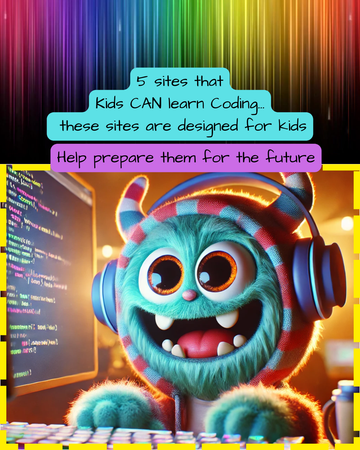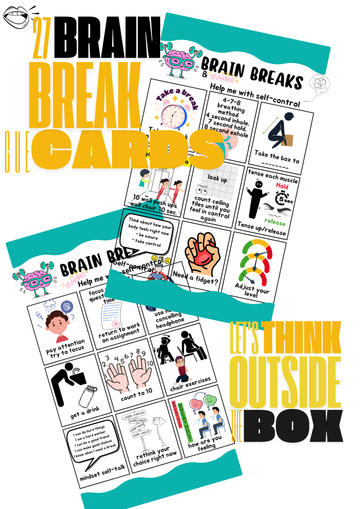Positive and Negative Thoughts by Lisa Cranford
The Power of Positive Thinking: Helping Kids Replace Negative Thoughts with Positive Ones
Let’s face it: school can be tough for kids. From struggling with math problems to dealing with social pressures, it’s easy for their thoughts to spiral into negativity. “I’m just not smart enough.” “Everyone’s better at this than me.” Sound familiar?
As parents and teachers, we’ve all heard kids say things like this, and it’s hard not to worry. But here’s the good news: these negative thoughts aren’t permanent. In fact, with a little guidance, kids can learn to shift their thinking—and that small change can make a huge difference in their confidence, happiness, and success.
Why Do Negative Thoughts Happen So Easily?
Did you know our brains are actually wired to focus on the negative? It’s called the “negativity bias,” and it’s something we’ve inherited from our ancestors. Back in the day, paying extra attention to dangers—like wild animals or poisonous plants—helped humans survive. But today, that same bias means we often fixate on problems, criticisms, or mistakes, even when there’s plenty of good to focus on.
For kids, this might look like obsessing over one wrong answer on a test instead of celebrating the 19 they got right, or assuming they’re bad at sports because they didn’t score a goal. Without guidance, these negative thoughts can stick around and become part of how they see themselves.
When Should We Start Helping Kids Think Positively?
The sooner, the better. Research shows that by age three, kids are already forming beliefs about themselves based on what they hear and experience. For example, if a child struggles with drawing and hears “Wow, you’re not an artist,” they might start to believe they’re not creative. But with encouragement like, “You’re learning so much—keep going!” they’ll be more likely to stick with it.
For elementary-aged kids, this is a prime time to tackle negative thoughts. They’re learning how to think critically and compare themselves to others, which can sometimes lead to self-doubt. And for middle schoolers and teens, replacing negative thoughts is even more important as they navigate peer pressure, tougher academics, and a growing need for independence.
Why Positive Thinking Matters
Positive thinking isn’t just about “feeling good.” It’s a powerful tool that can shape how kids approach challenges. Studies show that kids with a positive mindset:
-
Perform better in school (up to 45% higher grades in some cases!)
-
Have healthier relationships with peers and teachers
-
Are better at handling stress and bouncing back from setbacks
It’s all about teaching them to see challenges as opportunities, not roadblocks.
Real-Life Examples: Turning Negativity Around
Let’s look at how positive thinking works in real life:
Sarah, Age 9
Sarah hated spelling tests. Every week, she’d groan, “I’m terrible at spelling.” Her teacher noticed and introduced a simple strategy: after each practice session, Sarah would say, “I’m getting better every day.” Over time, Sarah’s confidence grew, and her test scores improved.
Ethan, Age 13
Ethan dreaded PE class because he thought he wasn’t athletic. After talking with his dad, Ethan started focusing on small wins, like running a little faster each week. His dad would say, “Look how much stronger you’re getting!” That encouragement helped Ethan enjoy PE more and even sign up for the school soccer team.
How Negative Thoughts Affect Kids’ Subconscious Minds
Here’s the thing: kids’ subconscious minds are like sponges. The more they think or hear something, the more likely it is to stick. If a child keeps saying, “I’m not good at math,” their brain starts to believe it, and they might stop trying altogether.
But when we encourage positive thoughts like, “Math is tricky, but I can figure it out,” we’re helping them rewrite those beliefs. Over time, these positive messages shape their subconscious, boosting their confidence and motivation.
How Parents and Teachers Can Help
It’s easier than you might think to help kids flip the script. Here are some simple ways to get started:
-
Model Positive Thinking
Kids look up to the adults around them. If they see you staying calm and positive in tough situations, they’ll learn to do the same. -
Teach Them to Reframe
When a child says, “I’m terrible at this,” guide them to reframe it. For example, say, “You’re still learning, and that’s okay. Let’s figure it out together.” -
Celebrate Progress, Not Perfection
Whether it’s improving a grade or just putting in extra effort, celebrate the small wins. It builds confidence and shows kids that effort matters. -
Use Affirmations
Encourage kids to repeat simple, positive statements like, “I am capable,” or “I learn from mistakes.” These affirmations help reprogram their subconscious. -
Practice Gratitude
Help kids focus on what’s going well. Try starting a “gratitude journal” where they write down one good thing about their day. -
Set Realistic Goals
Break big tasks into smaller, achievable steps. This makes challenges feel less overwhelming and more manageable.
A Long-Term Impact That Lasts
When kids learn to replace “I can’t” with “I can try,” they’re not just improving their school performance—they’re building resilience and a mindset that will carry them through life. As they grow, they’ll face challenges with confidence, knowing they can handle whatever comes their way.
Let’s Start Today
Parents and teachers, we have the power to make a real difference in how kids see themselves and the world. By helping them shift their thoughts from negative to positive, we’re giving them the tools to succeed not just in school, but in life.
So, the next time your child says, “I hate Mondays,” remind them: “Mondays are a fresh start—a chance to try something new!” You might just see their whole outlook change. And who knows? You might even change your own in the process. 😊





